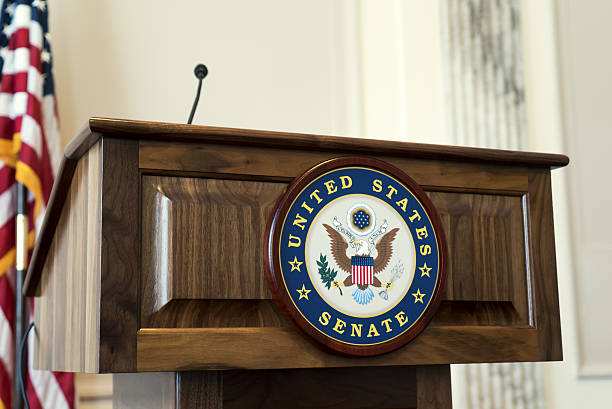The U.S. Senate has moved a step closer to regulating the fast-growing stablecoin market, passing a key procedural vote on the Guiding and Establishing National Innovation for US Stablecoins (GENIUS) Act. In a 66-32 vote held on May 19, lawmakers approved the motion to invoke cloture, allowing the bill to proceed to full Senate debate.
The bipartisan support came after several Democratic senators who had previously opposed the measure reversed course. Senators Mark Warner, Adam Schiff, and Ruben Gallego switched their votes, helping push the bill forward after initially blocking it on May 8.
Political Tensions Sparked by Trump’s Crypto Empire
The initial resistance from Democrats was driven largely by concerns over former President Donald Trump’s growing influence in the crypto space. Trump and his family have recently launched multiple crypto initiatives, including memecoins, a mining venture, a digital asset platform, and USD1 — a stablecoin that has quickly risen to become the seventh-largest by market cap, according to CoinGecko.
Senator Elizabeth Warren, a vocal crypto critic, strongly opposed the GENIUS Act, calling it a “green light” for Trump’s alleged crypto profiteering. “Trump and his family have already pocketed hundreds of millions of dollars from his crypto ventures,” she said. “They stand to make hundreds of millions more from his stablecoin, USD1, if this bill passes.”
Balancing Innovation With Oversight
Despite political friction, some Democrats acknowledged the need to engage with the crypto industry proactively. Senator Warner emphasized the urgency of legislative action. “We cannot allow that corruption to blind us to the broader reality: blockchain technology is here to stay,” he said. “If American lawmakers don’t shape it, others will — and not in ways that serve our interests or democratic values.”
Republican Senator Cynthia Lummis, a long-time crypto advocate and co-sponsor of the bill, has expressed optimism about the timeline. She told reporters on May 15 that Memorial Day, May 26, is a “fair target” for final passage.
What’s in the GENIUS Act?
Introduced by Senator Bill Hagerty on February 4, the GENIUS Act aims to bring comprehensive oversight to the $250 billion stablecoin sector, currently dominated by Tether and Circle’s USDC.
The bill would require all stablecoins to be fully backed by reserves, subject to regular audits, and issued only by federally or state-licensed entities. It also imposes restrictions on algorithmic stablecoins and builds upon earlier efforts, notably the Clarity for Payment Stablecoins Act introduced by former Representative Patrick McHenry.
As debate on the GENIUS Act begins on the Senate floor, the crypto industry and political world alike are closely watching how lawmakers will balance innovation, regulation, and political dynamics.


